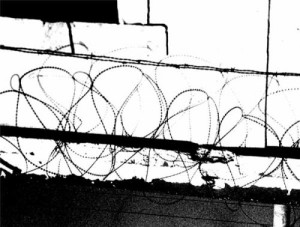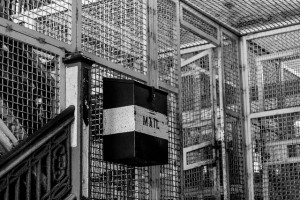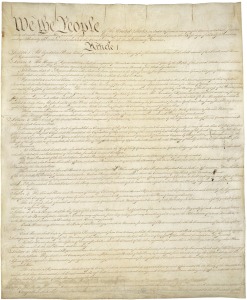
By: Mikhail Petrov
Today, in the criminal case of Watkins v. Hoke, the Fourth Circuit issued a published opinion reversing the decision of the United States District Court for the Southern District of West Virginia. In its decision, the Fourth Circuit denied habeas corpus to Defendant Steven Watkins (“Watkins”), who was convicted of attempted robbery. Prosecuting Attorney Brian Parsons (“Parsons”) stated to Defense Counsel James Adkins (“Adkins”), after trial, that he had discussed the element of fear with victim Mike Zimm (“Zimm”) and that Zimm suggested that he might not have been afraid of Watkins. Watkins filed a writ of habeas corpus because fear is one of the elements that is required to uphold a conviction for attempted robbery. The Fourth Circuit deferred to West Virginia’s habeas court’s ruling that Parsons’ discussion of the element of fear with Zimm was not an admission that Zimm was not afraid and the conversation was a routine step in trial preparation.
The Attempted Robbery and the Subsequent Decision of West Virginia’s Habeas Court
On June 7, 2007, Steven Watkins entered Zimm’s Pharmacy in Fayetteville, West Virginia wearing a hard hat, sunglasses, and a red bandanna. When Watkins entered, only the owner, Mike Zimm, and two female employees were inside. Watkins asked a question, but Zimm did not understand and asked Watkins to repeat. Watkins adjusted his disguise and asked Zimm if he had activated the store’s security system. Zimm said he did, even though he had not. Watkins then fled the store and was arrested by the police some time later. Watkins was charged with attempted robbery in the second degree which punishes “any person who … attempts to commit robbery by placing the victim in fear of bodily injury.” At trial, Zimm testified that he was fearful of Watkins. The jury found Watkins guilty.
After trial, Defense Counsel Adkins stated that he was present in a conversation with Prosecuting Attorney Parsons where Parsons allegedly uttered that Zimm had told him that he was never afraid of Watkins. Parsons then stated to Zimm that if that was the case, they should stop prosecuting. Adkins realized that this was possibly exculpatory evidence that should have been submitted to the defendant.
Watkins filed for a habeas corpus proceeding in state court. In a written response, Parsons admitted that he had a discussion with Zimm, but that he only explained the element of fear and that Zimm did not state that he was never afraid. Zimm wanted a better understanding of what fear meant in the context of the case. Watkins argued that the Parsons knowingly withheld evidence that was exculpatory. The state court denied the habeas corpus petition.
Watkins then filed for habeas corpus with the district court. The district court found that the state court never made a finding of whether or not Zimm stated that he was not in fear of Watkins. The district court ordered a plenary evidentiary hearing to make an independent factual determination. Finding later that such a hearing is inconsistent with the Cullen v. Pinholster decision of the Supreme Court (which held that federal habeas law limits review to the record that was before the state court), the district court scrapped the hearing and granted Watkins’ petition for habeas corpus.
The Rule of the Case
Watkins filed a petition for habeas corpus in West Virginia’s state court because Parsons had failed to inform him that Zimm was never in fear of Watkins. A victim’s fear of bodily harm is an essential element, material to a conviction for attempted robbery. In Brady v. Maryland the Supreme Court held that “the suppression by the prosecution of evidence favorable to an accused upon request violates due process where the evidence is material either to guilt or to punishment, irrespective of the good faith or bad faith of the prosecution.”
Reasoning of the Fourth Circuit
Watkins contends that the Prosecution violated Brady in failing to produce before trial the fact that Zimm had admitted that he was not afraid at the time of the attempted robbery. If this information is true, it is favorable to Watkins and thus a violation of Brady. But, Watkins’ claim is not supported by the state habeas record or the state habeas court’s finding and conclusion.
Watkins relies on amorphous statements made by Parsons to Adkins after the trial. The post-trial statements of Parsons to Adkins does not make it evidence of something that Parsons knew before trial. The statements could have been based on something after trial and amount only to retrospective speculation.
Additionally, the only evidence of a pretrial conversation was between Parsons and Zimm about the element of fear. The state habeas court found that (1) after the trial Zimm said he may not have been afraid and (2) Parsons had a pre-trail conversation with Zimm to discuss the meaning behind the fear element.
The district court did not find the state habeas court’s finding unreasonable in light of the evidence presented. Nor did the district court find that Watkins had rebutted the state habeas court’s factual finding with clear and convincing evidence. On the contrary, the district court accepted all factual findings. Still, it impermissibly altered the state’s findings to conclude that Parsons admitted to having been told by Zimm that he was not afraid. The record did not support that leap. In granting habeas corpus, the district court failed to accord the appropriate deference to the state habeas court’s findings.
The Fourth Circuit Reversed the Decision of the District Court
The Fourth Circuit concluded that the state habeas court did not base its decision on “an unreasonable determination of the facts” and Watkins’ did not attempt to rebut the presumption of correctness by clear and convincing evidence. Additionally, the Brady rule was not applied in an objectively unreasonable manner. Thus the Court revered the district court’s grant of a writ of habeas corpus.
In her dissent, Judge Diana Gibbon Motz argues that the district court properly concluded that the state court unreasonably applied Brady. Motz goes on to say that the state habeas court did indeed find that Parsons had evidence that Zimm was not afraid of Watkins and that Parsons failure to inform the defense of this evidence clearly violated Brady.











